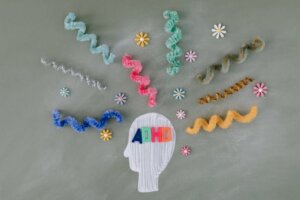It’s happening again: You’re out with your friends, trying to have a good night, but the music doesn’t make you want to dance; it makes your head want to explode. The lights don’t inspire dancing; they inspire a need to run. You escape to the bathroom, but it smells so bad you might throw up.
Maybe you’ve been here before. ADHD sensory overload happens when you become hyper-sensitive to sounds, sights, smells, tastes, and/or textures that feel more intense than usual. Sensory overload can be stressful and trigger the fight-or-flight response, making concentrating, relaxing, and operating normally hard.
While anyone is capable of sensory overload, it happens more often to those with ADHD because of how differently their brains process stimuli. (So no, it’s not just “in your head.”)
What Does Sensory Overload Feel Like?
Here’s everything that can be affected when you go through sensory overload:
-
- Emotional regulation: Emotional outbursts and activated reactions are more likely when you’re overstimulated.
- Unexplained pains: Overstimulation can cause headaches, dizziness, nausea, and light-headedness.
- Spurts of anxiety: You may spiral into worrying thoughts, become irritable, or experience a panic attack.
- Difficulty sleeping: Falling and staying asleep may become difficult, or you may wake from sleep feeling unrested.
Common Sensory Workarounds

As children, many ADHDers have foods, articles of clothing, or places that they just don’t like being in. Yogurt may taste good, but the way it splays across your tongue freaks you out. Aunt Emily’s house may be fun, but the candles she lights make it unbearable. Doily socks may be appropriate for the holidays, but the way it scratches your ankles quickly distresses you.
Now, you may have habits built around avoiding certain clothing textures, foods, and places that bother you. However, missing out on life by staying home all the time or doing the same things repeatedly can be limiting. What can you do when loud noises, bright lights, pungent smells, stressful crowds, weird textures, and overwhelming multitasking can’t be avoided?
1. Reduce your exposure if you can’t eliminate stimuli entirely.
Maybe you can’t control the harsh sunlight that breaks through the blinds every morning. However, you can install a curtain rod with blackout curtains. You can exchange harsh, white LED light bulbs for less stimulating, warmer-toned ones.
Your brother might be upset if you miss his wedding, so instead of staying all night at the reception, maybe you offer to come early and help set up so you can leave early without feeling guilty. Maybe you only attend the ceremony and drop off a gift at the reception.
Voice your hypersensitivities to friends and family you make plans with so they can better understand where you’re coming from and adapt accordingly. Remember, it’s not your fault. Everyone gets overstimulated from time to time; you just may experience it more than others.
2. Try sensory-aiding technology and tricks.
Nowadays, there are so many tools that help folks deal with sensory overload. Noise-canceling headphones, prescription sunglasses, weighted blankets, compression socks, and fidget toys can all help ease overstimulation, depending on the situation.
Wash your clothes with scents that make you feel calm so you can sniff your sleeves whenever your environment smells unpleasant. (Or keep a scented chapstick on you to sniff if you prefer to wash with scent-free detergent!)
3. Make meditation a daily practice.
Did you know that only 10 minutes of meditation a day can significantly reduce irritability, stress, and anxiety, as well as inspire more self-compassion and positive thinking? Online guided meditation videos can help people with ADHD who struggle to quiet their thoughts. Start with three minutes a day for at least a week, then move up to five minutes, then when you’re ready, go to 10 or 15. You may find yourself getting overstimulated less often.
4. Work with a mental health counselor.
Counselors are equipped with research and tools to help you overcome sensory overload, prepare for it, and embrace who you are beyond it. They may recommend lifestyle modifications you haven’t considered or introduce you to calming techniques that help you recover. Schedule your first appointment today by reaching out to us for ADHD therapy.
